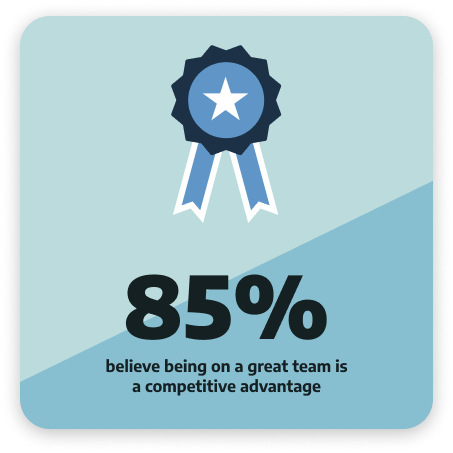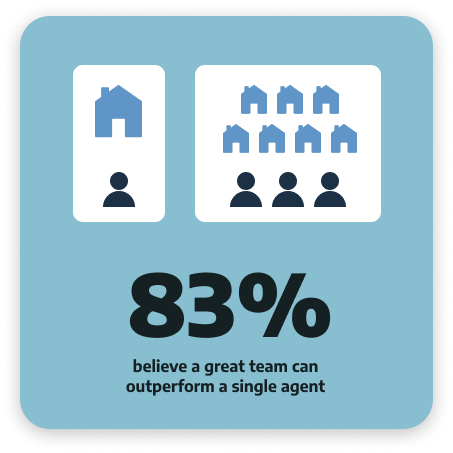More and more real estate agents want a team model — but are they finding the balance they’re looking for?

As attitudes and practices around real estate teams continue to evolve, the need for hard information clarifying the goals and challenges of team members and leaders has never been greater.
Real estate teams are more of a presence in the industry than they have ever been, and for good reason. Teams help boost profitability while elevating customer service at the same time. They provide support to agents of all experience and production levels. And they help generate stability in an industry that often sees itself tossed about by the fickle winds of “the market.”
Over the last few years, the industry has appeared to shift its sometimes-antagonistic views regarding teams. The [Name of Study] study seeks to understand the current state of real estate teams by investigating the attitudes and challenges of the professionals who work in them. Its findings confirm many of the assumptions we make about the benefits of teams while uncovering key insights into the current real estate team experience — areas any broker or team leader can improve in their organization.
Across generations, gender, income levels, and work experience, real estate professionals report having positive or very positive experiences working on teams.
Respondents overwhelmingly noted that teams foster a sense of accountability, community, and collaboration, which in turn helps stimulate improved sales results.

One of the reasons agents tend to have such positive experiences with teams is that they find greater success on teams than on their own. The rate at which respondents correlate their success with being on a team strongly implies that teams will only continue to increase in relevance throughout the industry.



For all the good teams do, there is still a significant gap between what agents hope for when joining a team and the benefits they actually see.
The study provides thousands of data points that illuminate team members’ attitudes toward workplace culture, training, leadership styles, and much more. Taken in sum, these data provide one of the most comprehensive looks at real estate team dynamics ever assembled — a key diagnostic tool for teams everywhere.

This study confirms what many in the real estate industry already know: that teams are widely seen as beneficial to both agents, leaders, and brokers and that the team model has broad support among those that use it. But it also helps us understand the areas in which many teams struggle: management and leadership styles, training, culture, systems, and more.
The fact that team members speak and think so positively about teams even though their expectations are not always met demonstrates the strong buy-in people have for teams and forecasts a need for improvement going forward. By shedding light on the components of teams that work and highlighting areas of friction, this study becomes an invaluable tool in the arsenal of any team leader or broker.
+2 free team-building
bonuses

